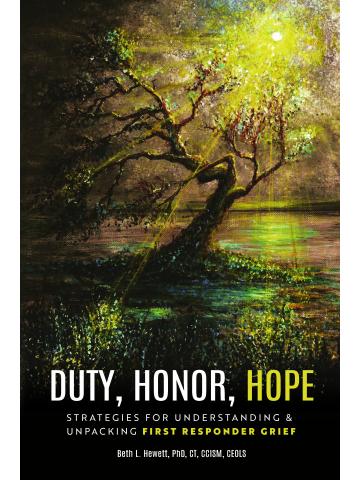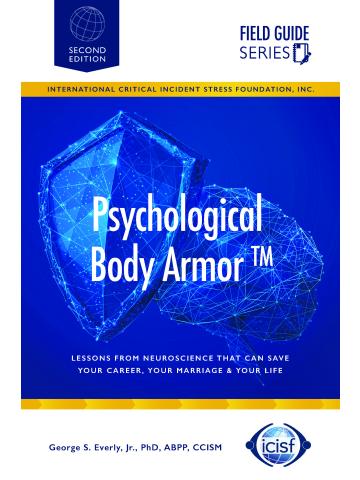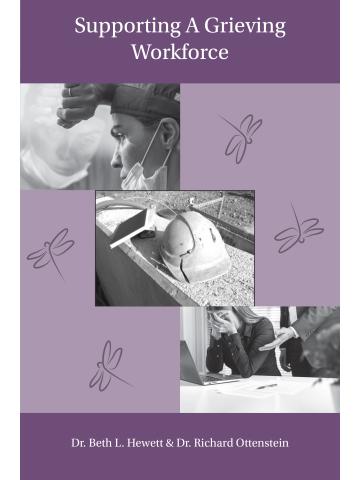
ISBN: 978-1-943001-28-6
"Without question, this is the best book I have ever seen on the topic of grief." - George S. Everly, Jr., PhD, ABPP
In Duty, Honor, Hope: Strategies for Understanding and Unpacking First Responder Grief, Dr. Beth L. Hewett uses the lived experiences of 21 first responders, offering a practical approach to a subject many people don’t discuss: grief, grieving, and intentional mourning.
Griefs stemming from critical incidents often go unmourned, accumulating and stacking up, and eventually overflowing. She teaches a first response action approach to address stacked up griefs and prevent them from reaccumulating.
The beautiful cover artwork "Returning to Light" was painted by Shawn McCowell.
In Duty, Honor, Hope: Strategies for Understanding and Unpacking First Responder Grief, Beth L. Hewett, PhD uses the lived experiences of 21 first responders, offering a practical approach to a subject many people don’t discuss: grief, grieving, and intentional mourning.
Many first responders experience traumas from critical incidents, which often are assisted by Critical Incident Stress Management (CISM) interventions. Yet one of the most lasting effects of critical incidents may be the grief first responders feel from witnessing victims’, coworkers’, and family members’ deaths, as well as the multiple losses anyone might experience: career changes, life transitions, long-term illnesses, and more. Because first responders must return to their work, often immediately after a critical incident, many of these griefs go unmourned, placed into containers in which they accumulate and stack up. Over time, these containers fill up and over flow. Dr. Hewett teaches a first response action approach to addressing stacked up griefs and preventing them from reaccumulating and negatively affecting work and home life.
About the Artist:
Canadian Peel Regional Police (PRP) Staff Sergeant (Ret.) Shawn McCowell was an active member of the PRP’s Peer Support Team for over 20 years. He is an ICISF Approved Instructor since 2009 and the peer support trainer for Boots on the Ground, a 24/7 telephone and in-person peer support line for first responders.
Shawn is a self-taught artist who learned to cope with traumatic incidents by pouring much of his work-place stress into his art. His paintings often portray the complex emotions involved in first responder work.
Beth L. Hewett, PhD, CT, CCISM, CEOLS is a Certified Thanatologist, Compassionate Bereavement Care™ specialist, Certified Critical Incident Stress Management specialist, and Certified End-of-Life Doula. She is a public speaker and the author of Grief on the Road to Emmaus: A Monastic Approach to Journeying with the Bereaved, Good Words: Memorializing through a Eulogy and More Good Words: Practical Activities for Mourning, and coauthor of Supporting a Grieving Workforce.
Dr. Hewett supports the bereaved as a grief coach and spiritual companion. Her work includes pre- and post-death bereavement, healing ceremony and ritual, and mindful mourning activities. Her publications, to include articles and blogs, can be found at www.goodwordsforgrieving.com.




